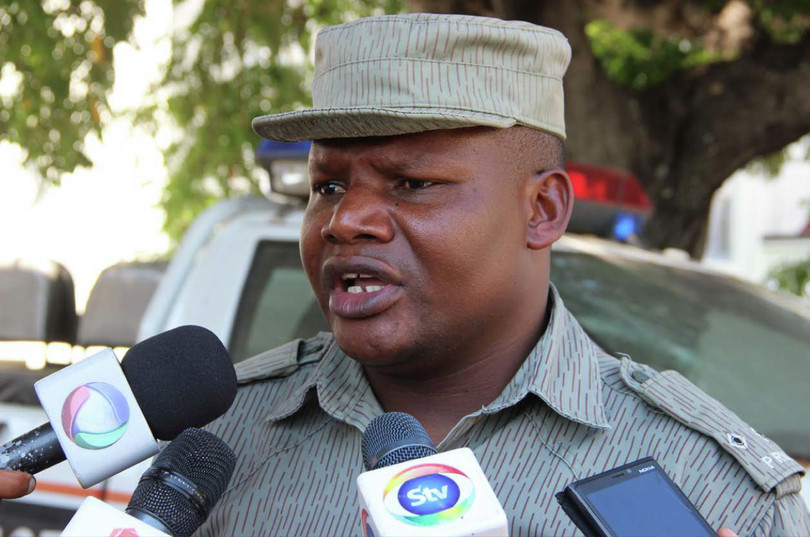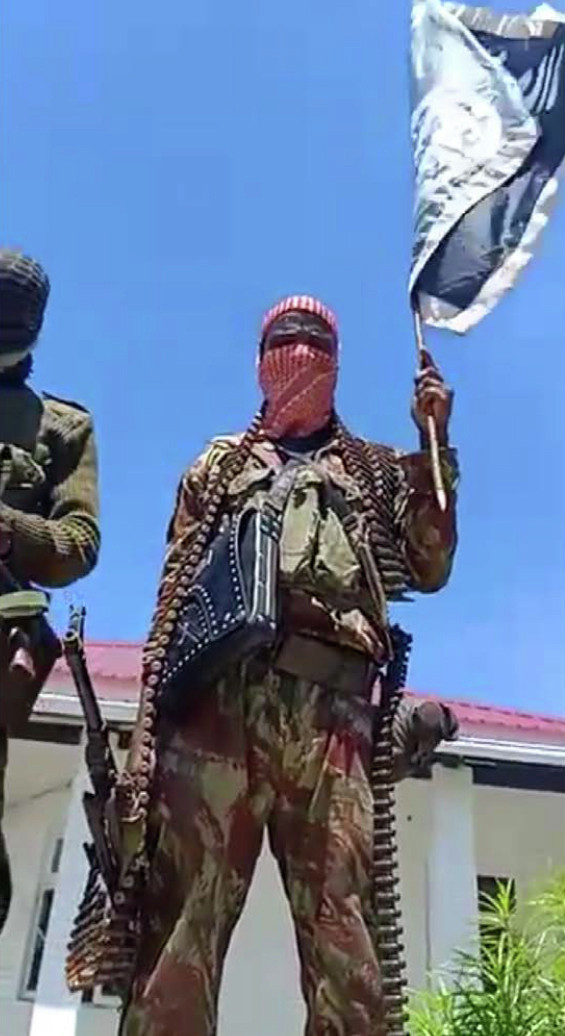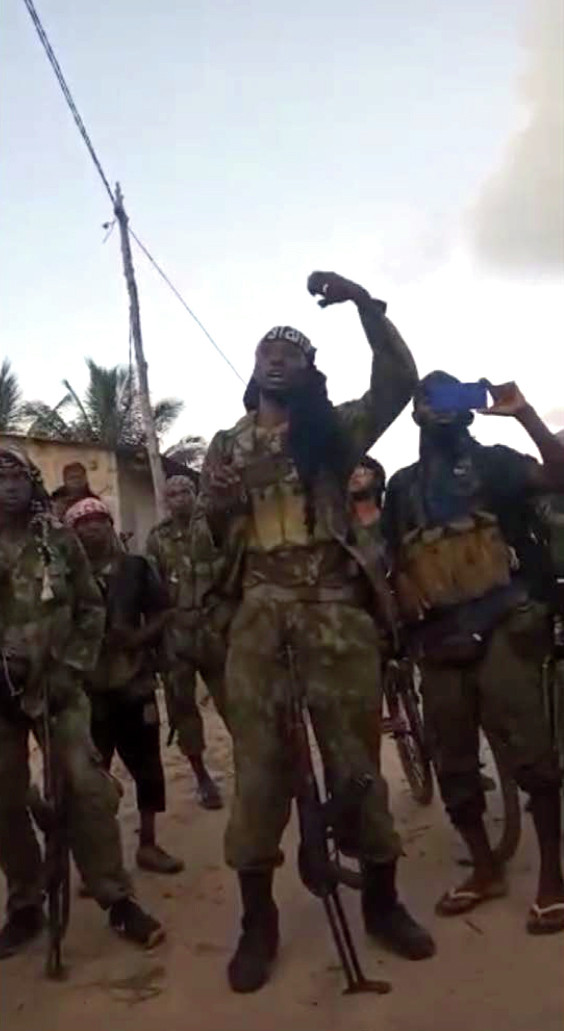Government neglect and corruption in Cabo Delgado have strengthened the insurgency’s hand
Cabo Delgado has long been one of Mozambique’s most neglected provinces. At the northernmost extreme of the country, it is physically remote from the capital, and it was effectively cut off from the south during the country’s 1977–1992 civil war. Despite an abundance of natural resources, the province is poor and illiterate. When conflict broke out in 2017, many observers pointed to Cabo Delgado’s neglect by the national government, systemic corruption and economic grievances as driving the insurgency and creating fertile ground in which it could take deeper root. Yet to date, the government of Mozambique has not made serious attempts to address these concerns and restore confidence in the state. On the contrary, its response continues to be dogged by state corruption and weak legitimacy. In pursuing quick military fixes and suppressing information about the war, it is playing into the insurgents’ hands and failing to win the support of the local population.
Weaknesses in the state’s response
The government’s current approach suggests they are relying on achieving a military solution to the conflict, but do not have faith in the ability of the Defence and Security Forces (FDS) to achieve it. (The FDS include the State Security and Intelligence Services, the police and the Mozambique Armed Defence Forces.)
To this end, they have recently engaged the services of Dyck Advisory Group, a South African private military contractor (PMC) headed up by former Zimbabwean colonel Lionel Dyck, through a contract with the Mozambican police force.1 This followed a disastrous earlier engagement by Wagner, a Russian PMC, which withdrew after several of its fighters were ambushed and beheaded by the insurgents.2
The use of PMCs has followed a seemingly poor performance by the FDS, who have on several occasions been ambushed or overrun by insurgents, despite the insurgents’ inferior resources. Many of the challenges the army faces are systemic and long-standing, and mobilizing army recruits to fight the war in the north was always going to be challenging. The army mostly draws conscripts from the south. Fighting a conflict in Cabo Delgado puts these men in an unfamiliar landscape where most do not speak the local language, are poorly equipped and are not necessarily welcomed or trusted by the local population. Only competent military leadership could create an effective counter-insurgency force under these conditions.
The defence force has been further undermined by allegations of corruption at all levels. Senior FDS leadership are tainted by the 2016 US$2 billion loan scandal – including President Nyusi, who was minister of defence at the time the loans were contracted.3 In addition, there have been allegations that retired senior officers and one retired security minister, with close links to the presidency, are personally involved in logistics and transport companies that have contracts to supply and move goods and troops from Maputo to Cabo Delgado for the war effort.4 If true, this gives them reason to prefer the war to continue at a low level with the armed forces holding key towns, rather than ending it as soon as possible. There have also been complaints that rations and danger pay have not reached the soldiers on the ground but have been pocketed by senior officers.5
The national government has also failed to present a consistent and coherent picture of the insurgents, switching between characterizing them as common criminals and as forces that pose an existential threat to Mozambique.6 Senior police officers tell the public that everything is under control, while insurgents appear to attack towns and villages with impunity.7 This confusion permeates the state response, creating a lack of defined purpose for the counter-insurgency effort, from the leadership of the country to conscripts on the ground.8 Together with poor conditions on the front lines, it is not surprising that some FDS conscripts are said to desert their posts before or at the beginning of attacks.9
Government attempts to control the narrative – shifting statements and media repression

Ibraimo Mbaruco, a journalist and news reader on Palma Community Radio, has been missing since 7 April.
SOURCE: Social media.

Mozambican police spokesperson Orlando Mudumane addresses reporters on 5 June 2019, after Islamic State had claimed its involvement in the Cabo Delgado insurgency for the first time.
© Borges Nhamire/Getty Images
The battle between insurgents and the state in Cabo Delgado is as much for the public narrative as for territory. Part of the Mozambican government’s response to the insurgency has been to clamp down on media reporting in an attempt to project an image of control.10
Since June 2018, journalists travelling to the region have repeatedly been detained by the army or arrested by police on spurious charges.11 Persecution of journalists continues, with the latest case being the apparent abduction of Mozambican radio journalist Ibraimo Mbaruco, who sent a message to colleagues on 7 April that he was ‘surrounded by soldiers’ and has not been seen since.12
This practice has created an information vacuum around the conflict and contributed to the obscurity surrounding the insurgent group, whose aims are not widely understood.13 Restricting media access to the affected provinces limits coverage of other news stories – even if they are not related to insurgent attacks – such as trafficking and corruption.
The suppression of the information flow out of Cabo Delgado is an attempt to limit the exposure of state failures and abuses. It also gives fuel to conspiracy theories alleging that the insurgency is a false-flag operation instigated by Frelimo politicians, connected to a bid for greater profits from LNG (liquefied natural gas) or the illicit economy.
The government’s own narratives around the conflict have shifted, and do not appear to be tethered to events on the ground. Before and shortly after Mozambique’s 2019 national elections, the defence and security services released reports of successful operations against the insurgency, which reportedly enjoyed popular support.14
Later – especially after the clashes with insurgents that caused the Wagner Group, private Russian military contractors hired to help fight the insurgency, to withdraw15 – these public statements ceased.
In response to more audacious recent insurgent attacks, senior government figures have denied the significance of the conflict and the danger which the insurgents pose. After the occupation of Mocímboa da Praia, defence minister Jaime Neto dismissed the idea that security forces are failing in the region.16
After the wave of attacks that followed, the general commander of the Mozambican police, Bernadino Rafael, denied that rebels controlled part of the region but euphemistically admitted that ‘what do exist are areas prone to incursions by the evildoers’.17
President Nyusi’s description of the insurgents throughout the conflict has been inconsistent. He called them common criminals who must be brought to justice locally,18 then referred to them at the UN General Assembly as ‘criminals committing crimes of a global character, with non-nationals involved’. He also raised the issue of ‘extremist activity’ in meetings with South Africa,19 and has described them as a threat to Mozambique’s sovereignty.20
In an example of the government downplaying the seriousness of the insurgency issue, Mozambique National Police spokesperson Orlando Mudumane addressed reporters on 5 June 2019, after Islamic State claimed for the first time that it was involved in the Cabo Delgado insurgency, saying, ‘The information is not true. The police reiterate the readiness of the security forces to combat whatever wrongdoers do.’21 Since then, the links between Islamic State and the Cabo Delgado insurgents have become clearer, as the extremist group has claimed more attacks and insurgents have displayed the black-and-white Islamic State flag in towns they have attacked.
Figure 2 Journalists reporting on the conflict in northern Mozambique have been subjected to arbitrary detention, harassment and threats from the police, military and government figures since the insurgency began in late 2017.
SOURCE: Authors’ compilation based on media reporting.
Insurgent attempts to control the narrative – communication on the ground and online
Unlike the government’s messaging, the insurgents’ narratives have become clearer. While the attacks on infrastructure such as military bases and banks naturally offer strategic value by providing the group with funding and weapons, torching government buildings and raising the black-and-white Islamic State flag make powerful symbolic statements that they have, at least for the duration of the attack, ousted state power.
They have begun, more overtly, to make religious and political arguments to civilian audiences that they have greater legitimacy to rule than the Mozambican state. The first video that they released appears to have been shot during the occupation of Mocímboa da Praia on 23 March. In the video, displaying the Islamic State flag, a spokesman declared that the group’s ultimate goal was to turn the region into a caliphate under sharia law.22 Signs left on a bank in Muidumbe, which was ransacked by the insurgents in a later attack, reiterated the aim to establish an ‘Islamic state’.23
In a video that circulated on 8 April, showing an attack in Muidumbe, insurgents used dehumanizing rhetoric to refer to the police and the army. A spokesman said, ‘We invaded to show the current government is unfair. We are many in the bush. We aim at the armed forces we consider pigs … Don’t collaborate with them, else when we come a third time we will kill and cut you to pieces.’24
‘It [the government] humiliates the poor and gives advantages to the rich. The people who are detained are from the lower classes and this is not just. Whether people like it or not, we are defending Islam.’
This rhetoric may capitalize on the deep lack of trust in the state which already exists within communities in northern Mozambique. The brutal, oppressive tactics that are reportedly being used against civilians by security forces aiming to restore order in the region may deepen this divide further and play into the insurgents’ rhetoric.


Left: Two insurgents stand in front of a government building in Quissanga with an ISCAP flag. The insurgent in the red bandana calls on others to join their fight and says that the flag of the governing party is not accepted.
Right: An insurgent addresses the local population in a village in Muidumbe district in early April.
SOURCE: Video shared by jihadists on social media.
Following the string of insurgent victories (described above in the report on insurgents in Cabo Delgado), the Dyck Advisory Group appears to have been brought in to secure some quick military gains. Members of this organization have previously assisted government anti-poaching operations in the south of Mozambique, and may have local experience and training better suited to this conflict than the Russians. However, their current deployment is hampered by its contravening South Africa’s Prohibition of Mercenary Activities and Regulation of Certain Activities in Countries of Armed Conflict Act of 2006.25 This is causing diplomatic tensions between the two countries.26 Beyond this, it is also not clear how the Dyck Advisory Group’s operations, based primarily on the use of helicopter gunships, will be followed by ground troops or other measures which would make their successes sustainable.
The reliance on PMCs might not matter so much if their intervention took place in the context of a broader counter-insurgency strategy. Such a strategy, at a high level, would be based not just on military gains but also on restoring faith amongst the local population that the government can protect them and meet their needs, so they do not support the insurgents out of fear or sympathy. But instead of working on ‘soft’ aspects of counter-insurgency, like increasing the legitimacy of local government, Maputo has replaced civilian district administrators with military officers, and has allegedly started to arm ex-combatants as local militia to fight the insurgents.27
Maputo has also taken other actions which play into the hands of the insurgency. For example, the army and police have been accused of harassing local residents,28 and authorities have conducted mass arrests which may have netted dozens of innocent people, some of whom may have been tortured.29
Perhaps most crucially in the long term, the government’s poor communication strategy and suppression of information also allow the insurgents to shape the narrative and further undermine the government’s image (see Figure 2).
Factors complicating the government’s response
The escalation in the conflict comes at a particularly bad time for the government in Maputo, which is now fighting two conflicts – the second being with the breakaway Renamo Junta operating in the centre of the country. The government also has to respond to the new coronavirus epidemic, all while struggling to regain donor trust following the secret loans scandal and facing headwinds in the negotiations over the country’s debt burden and the investment schedule for the LNG project.
Many of the military’s better counter-insurgency moves may also be hidden by necessity, or by the same suppression of war reporting that prevents journalists from covering the conflict. And the government has not completely ignored calls for the development of Cabo Delgado. A new Northern Integrated Development Agency has been tasked with improving economic development in the north of the country and providing economic opportunities so that youth are not recruited into the insurgency. However, this has been met by scepticism from Mozambican journalists, who claim that a similar agency in Zambezia province failed due to high- level corruption.30
That said, the greatest barrier to an effective response by the government appears to be its perception of Cabo Delgado primarily as a site of resources that can be extracted for Maputo’s economic gain, not as a region where local people deserve better economic opportunities and governance.
The treasure chest
The government of Mozambique appears to look at the conflict – as do many international observers – primarily in terms of its impact on access to the region’s abundant natural resources.
The resource that has garnered the most attention in relation to the insurgency is LNG, which was discovered in 2010 in the Rovuma basin and has triggered intense interest from international investors. Major infrastructure development is now planned for sites slightly north and directly offshore from Mocímboa da Praia (incidentally, the town where the insurgency began). This discovery raised massive national expectations of economic transformation for the whole country, one of the world’s poorest. But since the revelation of the secret loans scandal, Mozambique’s economy has been volatile and growth has slowed dramatically, leaving the national budget under severe strain and triggering austerity measures in some sectors.31 While growth has picked up, full economic recovery and future wealth are predicated on the smooth development of the LNG projects, and it is fair to say that the hopes of millions of voters rest on the benefits they have been promised from these investments. This clearly has an impact on the popularity of the ruling party, Frelimo, and is central to the interests of the government more broadly defined (to the extent they can be separated at all). As the insurgency threatens the onshore aspects of this development and has decreased investor confidence in the project in the north, the national government’s decisions are highly focused on ensuring the LNG projects go ahead.32
The policies (formal and informal) which have in the past secured the economic interests of the elite now play into the hands of the insurgents. For the elite figures in control of these assets, resource extraction has often relied on actions that marginalize people, such as the reported abuses on or near the Gemfields ruby mine. Villagers and artisanal miners alleged they were subjected to beatings and torture; and that their relatives were murdered by security guards and police employed by the mine in order to stop them mining, and to keep them off agricultural land that fell within the mine concession area.33 In the illicit economy, traffickers have an interest in state systems being weak and ports being porous, which is what allowed the heroin and people-smuggling economies to flourish. The high-level corruption that allows for enormous personal profit for senior political figures gives cover for low-level corruption and means that people live with predation at all state levels. Combined with decades of underdevelopment of the region, this is a central challenge to state legitimacy.
The focus on preserving the status quo also appears to have led to a state response to the conflict which is focused on securing the north by military means. In the process, approaches that would address economic marginalization and state corruption have been neglected. To make matters worse, the military response has been mired in setbacks, and corruption and abuses may be exacerbating problems like weak state legitimacy.
The state needs to reinvest wealth in improving conditions for the people of the region, communicate transparently and allow the media to operate, and hold its own officials accountable for their crimes – in short, up-end the current arrangements for governing Cabo Delgado. It’s no small task. But if they don’t, the government’s own actions will remain the insurgent’s greatest asset as they continue to recruit and solicit support from local residents.
Notes
-
Peter Fabricius, ‘SA private military contractors’ and Mozambican airforce conduct major air attacks on Islamist extremists, Daily Maverick, 9 April 2020, https://www.dailymaverick.co.za/article/2020-04-09-sa-privatemilitary-contractors-and-mozambican-airforce-conductmajor-air-attacks-on-islamist-extremists/; Joseph Hanlon, Mozambique: Quirimba attack and response; South African helicopter gunships in Cabo Delgado; retaliation in Mitenda; & more ‘news reports and clippings’, 11 April 2020, https://clubofmozambique.com/news/mozambique-quirimba-attack-and-response-southafrican-helicopter-gunships-in-cabo-delgado-retaliationin-mitenda-more-news-reports-and-clippings-by-josephhanlon-157407/. ↩
-
Pjotr Sauer, In push for Africa, Russia’s Wagner mercenaries are ‘out of their depth’ in Mozambique, Moscow Times, 19 November 2019, https://www.themoscowtimes.com/2019/11/19/in-push-for-africarussias-wagner-mercenaries-are-out-of-their-depth-inmozambique-a68220. ↩
-
A $2bn loan scandal sank Mozambique’s economy, The Economist, 22 August 2019. ↩
-
Interview with Mozambican journalist, 7 April 2020. ↩
-
Joseph Hanlon, Mozambique: 910 dead in Cabo Delgado civil war, AllAfrica, 17 March 2020, https://allafrica.com/stories/202003170364.html. ↩
-
James Rogers, Ahead of elections, Mozambique grapples with violent insurgency, Atlantic Council, 11 October 2019, https://www.atlanticcouncil.org/blogs/africasource/ahead-of-elections-mozambique-grapples-with-violentinsurgency/; interview with Adriano Nuvunga, Centre for Democracy and Development, 8 April 2020; António Rodrigues, Nyusi admite que ataques em Cabo Delgado ‘podem comprometer’ soberania em Moçambique, P Moçambique, 27 March 2020, https://www.publico.pt/2020/03/27/mundo/noticia/nyusi-admite-ataques-cabo-delgado-podem-comprometer-soberaniamocambique-1909803. ↩
-
Lusa, Mozambique: Police deny rebels control parts of Cabo Delgado, Club of Mozambique, 14 April 2020, https://clubofmozambique.com/news/mozambique-police-denyrebels-control-parts-of-cabo-delgado-157651/; Lusa, Mozambique attacks: ‘We are not failing in Cabo Delgado’ – Minister of Defence, Club of Mozambique, 30 March 2020, https://clubofmozambique.com/news/mozambiqueattacks-we-are-not-failing-in-cabo-delgado-minister-ofdefence-156493/. ↩
-
Interview with Adriano Nuvunga, Centre for Democracy and Development, 8 April 2020. ↩
-
Interview with Mozambican journalist, 7 April 2020; Emilia Columbo, Supporting Mozambique’s response to the growing insurgent threat in Cabo Delgado, Center for Strategic and International Studies, 9 April 2020, https://www.csis.org/analysis/supporting-mozambiques-responsegrowing-insurgent-threat-cabo-delgado. ↩
-
Jasmine Opperman, An expanded Russian interest in northern Mozambique could be a new game changer, Daily Maverick, 14 October 2019, https://www.dailymaverick.co.za/article/2019-10-14-an-expanded-russian-interestin-northern-mozambique-could-be-a-new-game-changer/. ↩
-
RSF Reporters Without Borders, Mozambique, undated, https://rsf.org/en/mozambique; Human Rights Watch, Mozambique: media barred from insurgent region – journalists covering conflict intimidated, detained, prosecuted, 21 February 2019, https://www.hrw.org/news/2019/02/21/mozambique-media-barred-insurgentregion. ↩
-
AllAfrica, Mozambique: Journalist kidnapped in Palma, 10 April 2020, https://allafrica.com/stories/202004110069.html; MISA Moçambique, Relatório sobre o desaparecimento do jornalista Ibraimo Abu Mbaruco em Palma (Cabo Delgado), undated, http://www.misa.org.mz/index.php/destaques/noticias/77-relatorio-sobre-o-desaparecimento-do-jornalista-ibraimoabu-mbaruco-em-palma-cabo-delgado. ↩
-
Simon Allison, The faceless insurgency in Mozambique that no one can explain, Mail & Guardian, 25 April 2019, https://mg.co.za/article/2019-04-25-the-faceless-insurgency-inmozambique-that-no-one-can-explain/. ↩
-
See https://www.sowetanlive.co.za/news/africa/2019-10-09-mozambique-says-army-killed-9-jihadists-in-restivenorth/; https://allafrica.com/stories/201910240410.html. ↩
-
See https://www.dailymaverick.co.za/article/2020-04-09-sa-private-military-contractors-and-mozambican-airforceconduct-major-air-attacks-on-islamist-extremists/. ↩
-
See https://clubofmozambique.com/news/mozambiqueattacks-we-are-not-failing-in-cabo-delgado-minister-ofdefence-156493/. ↩
-
See https://clubofmozambique.com/news/mozambique-police-deny-rebels-control-parts-of-cabodelgado-157651/. ↩
-
See https://www.atlanticcouncil.org/blogs/africasource/ahead-of-elections-mozambique-grapples-with-violentinsurgency/; interview with Adriano Nuvunga, CDD Mozambique, 8 April 2020. ↩
-
See https://www.dailymaverick.co.za/article/2018-11-20-mozambiques-apparent-islamist-insurgency-posesmultiple-threats/. ↩
-
See https://www.publico.pt/2020/03/27/mundo/noticia/nyusi-admite-ataques-cabo-delgado-podem-comprometersoberania-mocambique-1909803. ↩
-
Business Day, Scepticism over Islamic State’s claim of clash with army in Mozambique, 5 June 2019, https://www.businesslive.co.za/bd/world/africa/2019-06-05-scepticism-over-islamic-states-claim-of-clash-with-armyin-mozambique/. ↩
-
See https://news.yahoo.com/extremists-northernmozambique-declare-goal-caliphate-112630675.html. ↩
-
See https://twitter.com/emorier/status/1248993215019171840. ↩
-
See https://southerntimesafrica.com/site/news/terrorists-strike-mozambiques-muidumbe-district; Club of Mozambique, Terrorist strike in Muidumbe district – AIM report, 9 April 2020, https://clubofmozambique.com/news/mozambique-terrorist-strike-in-muidumbe-district-aimreport-157254/. ↩
-
Shannon Ebrahim, The AU must act against Mozambique’s very real IS threat, IOL, 19 April 2020, https://www.iol.co.za/news/opinion/the-au-must-act-againstmozambiques-very-real-is-threat-46895025. ↩
-
Africa Intelligence, Pretoria nettled by the actions of military contractors in Cabo Delgado, 22 April 2020, https://www.africaintelligence.com/southern-africa-and-islands/2020/04/22/pretoria-nettled-by-the-actions-of-military-contractors-in-cabo-delgado,108402179-eve. ↩
-
Joseph Hanlon, Mozambique: Quirimba attack and response; South African helicopter gunships in Cabo Delgado; retaliation in Mitenda; & more ‘news reports and clippings’ – Club of Mozambique, 11 April 2020, https://clubofmozambique.com/news/mozambique-quirimbaattack-and-response-south-african-helicopter-gunships-incabo-delgado-retaliation-in-mitenda-more-news-reportsand-clippings-by-joseph-hanlon-157407/. ↩
-
Carta de Moçambique, Hell in Paquitequete: “the punching bags of the cops”, 22 April 2020, https://cartamz.com/index.php/politica/item/4970-inferno-no-paquitequeteos-sacos-de-pancada-da-bofia; Omardine Omar, From Paquitequete to Mueda: the difficult days of the population fleeing attacks, Carta de Moçambique, 22 April 2020, https://cartamz.com/index.php/politica/item/4949-depaquetiquete-a-mueda-os-dificeis-dias-da-populacao-quefoge-dos-ataques. ↩
-
Human Rights Watch, Mozambique: Security forces abusing suspected insurgents, 4 December 2018, https://www.hrw.org/news/2018/12/04/mozambique-securityforces-abusing-suspected-insurgents; James Rogers, Ahead of elections, Mozambique grapples with violent insurgency, Atlantic Council, 11 October 2019, https://www.atlanticcouncil.org/blogs/africasource/ahead-ofelections-mozambique-grapples-with-violent-insurgency/. ↩
-
@Verdade, a Mozambican newspaper, noted that the Development Agency of the Zambeze Valley (Agencia de Desenvolvimento do Vale do Zambeze) was found by the Administrative Tribunal in 2017 to have spent $1.4 million without appropriate paperwork and $350 000 with no contract at all – see Joseph Hanlon, Mozambique: 910 Dead in Cabo Delgado Civil War, AllAfrica, 17 March 2020, https://allafrica.com/stories/202003170364.html. ↩
-
B. Ballard, Mozambique’s dramatic economic reversal, World Finance, 11 July 2018. ↩
-
This is not without cause. A recent announcement by investors that they would delay proceeding by five years explicitly mentioned security concerns related to the insurgency, though the decision was primarily motivated by extremely low gas prices and poor forecasts for short-term improvement – Stuart Elliott, Delay to Rovuma LNG latest setback for Mozambique LNG sector, S&P Global, 9 April 2020, https://www.spglobal.com/platts/en/market-insights/latest-news/natural-gas/040920-delay-to-rovuma-lnglatest-setback-for-mozambique-lng-sector; Derek Brower, Exxon slashes capital investment by $10bn, Financial Times, 7 April 2020, https://www.ft.com/content/0115d0ce-5e99-4801-9196-82375874f78b; The Economist, Jihadists threaten Mozambique’s new gasfields, 2 April 2020. ↩
-
Al Jazeera, Mozambique’s Gem Wars, 10 December 2015, https://www.aljazeera.com/programmes/africainvestigates/2015/12/mozambique-gemwars-151210075320384.html; Gemfields, the multinational company which controls the largest ruby mine, reached a settlement in a class-action suit related to these claims. See Dineo Faku, Gemfields pays out millions to settle claims of rights violations, IOL, 30 January 2019, https://www.iol.co.za/business-report/companies/gemfields-pays-out-millions-to-settle-claims-of-rightsviolations-19031395. ↩
